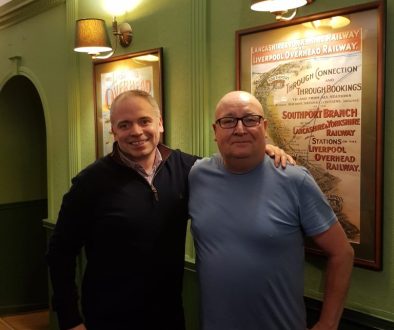Black History Month has passed – but we must not stop ringing the alarm on racism in social work by Wayne Reid
The level of inaction from many within the profession’s establishment is both deafening and revealing. To quote US novelist and activist James Baldwin: “I can’t believe what you say, because I see what you [don’t] do.”
Being ‘let in’
I write this article from both personal and professional perspectives. I do not speak on behalf of all Black and ethnic minority people or social workers as we are not a homogenous group. Also, I refuse to be the tokenistic ‘Black voice’ of BASW. I’m one of many Black voices in the profession. I realise that I’ve been ‘let in’ (to some extent) to express my views because, to quote Black historian and TV presenter David Olusoga, I “won’t scare the horses”: I am supposedly well-spoken and middle-class or so I’ve been told.
A senior social work manager joked to me recently that I “was the only authority on anti-racism in social work”. Although she was jesting, it did make me wonder what accountability and protections actually exist to support social workers of colour within the profession, given what we know about the omnipresence of racism. It didn’t take me very long to conclude – very little.
For the record, I’m not aspiring to be a ‘nice guy’ when it comes to combating oppressive regimes and systems. ‘Niceness’ is often weaponised against people of colour. My motivation is not for career ambition or financial gain. It’s for the cause, not applause – and the cause is Black Lives Matter.
My narrative is based on my lived experiences and those of other people who are routinely judged on the basis of their skin colour.
Yes, social work is institutionally racist
Sensible people know racism is not just an isolated event or incident. It’s also a reflection of institutions, structures (including micro and macro socio-economic and socio-political factors) – which all interact with each other and shape the lived experiences of Black people. When will we accept that the philosophy of white supremacy runs deep in most organisational cultures? It really is not that hard to see.
Since my previous article on promoting anti-racism in social work, there has been some decent position statements from some organisations and prominent social workers. However, there has also been some cringe statements; some nauseatingly feeble blogs and some noteworthy silences. Unfortunately, there remains a scarcity of cast-iron and explicit actions and/or commitments to anti-racism.
Clearly, anti-racism in social work is not universally accepted as high importance or as urgently needed. The response from the social work elite has been about as coherent, convincing and speedy as the government’s response to Covid-19, the A-Level fiasco and the Windrush scandal combined. However, the social work profession (like many others) is not broken. What we are experiencing and witnessing has been designed. If we truly want an equitable and inclusive profession that really encourages critical thinking, prioritises social justice and truly values diversity of service-users and staff, then we need to reimagine new structures, new systems and new discourses. A paradigm shift! Anything else is just papering over gaping tectonic plates.
Yes, social work is institutionally racist – but so are many institutions, organisations and professions (not just the Police) when you consider Sir William MacPherson’s definition from the 1999 report of the Stephen Lawrence Inquiry. There is evidently a “collective failure to provide an appropriate and professional service to social workers of colour based on their colour, culture or ethnic origin”. This is visible in “processes, attitudes and behaviour which amount to discrimination through unwitting prejudice, ignorance, thoughtlessness and racist stereotyping which disadvantage ethnic minority people ”. This correlates with the over-representation of Black and ethnic minority social workers in ‘fitness to practice’ cases; reports from the Social Workers Union of black social workers being failed on their assessed and supported year in employment (ASYE) and various other detrimental career outcomes. Basically, the modern-day social work equivalent of lynching.
I observe many key social work leaders asking the same old tired questions, then promising another exploration of the long and gruelling wilderness we meandered through in previous decades. Just like another government enquiry into, well… take your pick! The ongoing Windrush scandal? Stephen Lawrence? Stop and search?! The tactics generally deployed by our oppressors generally involve seek and destroy; smokescreens and mirrors or deafening silence.
The question is not: ‘Is social work racist?’ More incisive questions are: ‘As racism in society becomes more overt, what is social work actively doing to promote anti-racism?’ Or, ‘When will social work commit to (something like) a mandatory anti-racism commitment framework?’ With respect, in my previous article, I literally outlined a blueprint for large-scale anti-racist organisational change. I feel like I’ve done the class bully’s homework and then still taken a bashing on my way home. My ideas are not perfect (by any stretch of the imagination), but your homework is done for you, nonetheless.
We must now ask, is there really the appetite for real change? Is there the actual commitment, intention and motivation? Because if not, why not? Financial investment is not necessarily a major hurdle here – it comes down to the priorities and values of the existing leadership. I’d rather have some meaningful action, even if it is not perfect, as long as it is genuine – rather than this never-ending paralysis of fear and/or indifference. Let’s have more clarity about what your change looks like and the timescales for implementation. If not, it’s all just performative window-dressing and pitiful. No more questions – just meaningful actions please.
BASW England will continue to educate, equip and empower social workers of colour and allies. As an organisation, we realise that we are not immune to the perils of white supremacy and ‘whiteness’. However, BASW has shown a willingness to address and tackle these issues internally and within the profession more broadly. We will consider all anti-racist proposals from partnership organisations and specialist collaborators that will potentially benefit social work. I like the idea of an Office for Minority Heath, as proposed by Professor Diniesh Bhugra, to promote proper accountability and ensure people from Black and ethnic minority backgrounds have their holistic health (and social care) needs considered.
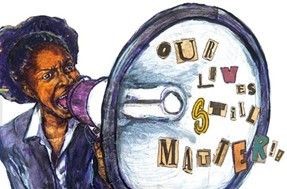
Minimisation Street
The prevalence of anti-black racism and the stealthy manoeuvres to gloss over our contributions and downplay our legacies is discombobulating. Some of us learn to live with the burden of our exposure in white spaces, even though it punctuates the rhythm of our everyday lives, and some do not.
Most Black and ethnic minority people recognise early on that we are forced to try harder and tolerate multi-layered oppression for our endeavours and to be recognised. This is evidenced by the tiny number of Black people honoured with a statue or trophy name; the groundswell of racism aimed at Marcus Rashford for campaigning to provide meals for disadvantaged children and the avalanche of complaints and relentless racism targeted at Ashley Banjo for leading a BLM-themed dance.
Interestingly, some people have likened Black actor John Boyega being cut out of the Chinese launch of a perfume advert to a photo tweeted from a Guardian Social Care Lives 2020 event in which I was cut out as a panelist.
People must make their own minds up about any similarities. The reality is the list of minimisations and omissions (accidental or otherwise) for me and other Black people is endless and normalised.
Critics argue that politics is for politicians and Rashford should ‘stick to football’ and Banjo should ‘stick to dancing’. These modern-day revolutionaries are accused of ‘playing the race card’ by some. Reducing our life experiences to a game of cards serves only to undermine the importance of what we say.
This minimisation strategy disturbingly correlates with attempts to de-politicise social work policy, practice and education. Have social workers been ‘dumbed-down’ to simply become agents of the state? This debate has continued for decades to a point where social workers are now regarded by some as agents of social control. Being politically and socially aware is essential to promote social work values and ethics – otherwise, surely, we are just automated robots.
To quote Black activist Guilaine Kinouani: “Any attempt at portraying [social work] (or any scholarly discipline) as an apolitical, decontexualisable and ‘neutral’ field of knowledge production which can operate outside of the realm of politics and ideology is not only ill-informed, it is naïve.”
Does the automation of tasks that social work has become in some places stifle this type of critical and free thinking? I’d argue it does and that there has been a silent (but deliberate) shift to devoid social workers of their political nous and social activism.
I’m not talking party politics here, but all the local and national activities through which people make, preserve and amend the written and unwritten rules under which we all live. The activities associated with making decisions for groups, power relations between individuals and the distribution of resources or elevated status by central government. From this perspective, politics is inextricably linked to the phenomena of conflict, cooperation, fairness, social justice and human rights.
It’s a bad state of affairs when those in power use the media to corrupt our societal world view, so that to be ‘woke’ or to ‘do-good’ is considered something to sneer at. Accusations of ‘virtue signalling’ and ‘victimhood’ do not evoke compassion or humanity, but provide an insightful measure of their sensibilities.
For those politicians of colour who deny ‘white privilege’ and denounce critical race theory, ‘Skin folk ain’t always kinfolk’ is an apt mantra from my upbringing.
Nowadays, I take the view that some white wolves exist in Black sheep’s clothing. Let’s be clear, these people are cleverly disguised gatekeepers and handlers. White supremacy is often more palatable when it is communicated by people from Black and ethnic minority backgrounds. Of course, the incentives of money and power are enough to seduce most human beings regardless of their ethnic background.
I’m Black all year round not just for one month
Black History Month (BHM) is not really a celebration of Black history. It’s more a filtered window of remembrance to pacify us. If those in power were serious about Black history, they would integrate it into all aspects of mainstream education.
There is a very real danger of BHM, the BLM movement and anti-racism all being caricatured and side-tracked by the insidious multi-dimensional forces that exist to suffocate them. Namely, different manifestations of white supremacy and institutional ‘whiteness’.
This is why we have ‘bigger fish to fry’ than Rule Britannia or whether Adele should have her hair in Bantu knots! Examples of this suffocation in social work include: racial harassment, gaslighting, and marginalisation. When white people attempt to police the dialogue and language of Black and ethnic minority people (based on what they view as palatable), this is how the ‘psychosis of whiteness‘ is socialised and teaches perceived entitlement and superiority over Black people. An example of this can be seen in the responses to rap music and Black culture.
Also, there are attempts to derail, discredit and devalue Black lives through social media, including through auto-generated ‘bots’ which is deeply sinister. The mission to educate, equip and empower hearts and minds on anti-racism has never felt more urgent in my lifetime.
The mainstream media and politicians think BLM is old news. However, since the resurgence of the BLM movement, BASW has been at the forefront of anti-racist social work activism. BASW England has championed anti-racism in social work on a scale unrivalled by any other organisation in the profession.
As an organisation, we also realise that we are not immune to the perils of white supremacy and institutional ‘whiteness’. However, BASW has shown a willingness to address and tackle these issues internally and in the profession more broadly.
Cringe position statements, feeble blogs and noteworthy silences
Since my last article in Community Care on promoting anti-racism in social work, there have been some decent position statements from some organisations and prominent social workers. However, there have also been some cringe statements, some nauseatingly feeble blogs and some noteworthy silences.
Unfortunately, there remains a scarcity of cast-iron and explicit actions and/or commitments to anti-racism.
Lightweight placatory comments like: “we are against racism and oppression in all its forms” is just not good enough anymore. Also, shamelessly flogging a blog from the only non-white staff member is a glaring attempt to tokenise the issues at hand. This is semi-skilful subterfuge to avoid addressing the real-life cause and effects of racism in social work.
What message does this really convey? Far from transformative, this approach is performative allyship or lacklustre window dressing at best. You know it, I know it – we all know it.
To quote Kinouani again: “When organisations perform anti-racism, it does not take long for the mask to fall… When performative committees are formed, they soon give themselves away. Justice is actually hard to fool.” Less fakery and more authenticity please.
Here is a reminder of the three typical organisational responses to racism that you might want to cross-reference with the white identities table by social work academic Gurnam Singh. How does your organisation match up?
- Keep silent, keep things the same and hope all this Black Lives Matter (BLM) ‘stuff’ just blows over. This kind of inaction and paralysis of fear correlates with and reinforces perceptions of ‘white fragility’, ‘white privilege’ and white supremacy for some Black people. Such an organisational response usually commends staff for being resilient and deflects attention away from the essential redesign of systems that routinely make people suffer.
- Publish lukewarm organisational statements that recycle and regurgitate previous rhetoric on workforce unity with predictable (and borderline offensive) platitudes – often proposing only superficial changes. For example, publishing a sympathetic, but non-committal brief statement; possibly delegating responsibilities to an already overworked equalities officer or proposing minor changes to already vague policies and procedures on ‘valuing diversity’ with little or no accountability. Approaches at this level are usually well-intended, but tokenistic and overlook the nuanced obstacles and pitfalls Black people face every day. Unfortunately, this response is common.
- Publish an authentic anti-racism action plan, outlining significant reforms that commit to specific, measurable, achievable and realistic targets (suggestions below). Examples include publishing a strong mission or position statement condemning George Floyd’s murder and racism in all its forms and committing to the British Association of Social Workers’ code of ethics, anti-oppressive, anti-discriminatory and anti-racist practice. This approach interlinks with the Anti-racist Commitment Framework. It sees white allies fully involved in challenging, deconstructing and dismantling racist systems in solidarity with Black people.
It is fantastic that Brighton & Hove Council are recruiting a lead practitioner for anti-racist practice on a permanent contract. My hope is that other social work employers will follow suit. At BASW England, we hope to work with employers to promote these types of innovations.
Equally fabulous news is that De Montfort University have developed a fully-funded PhD Studentship on BLM, which seems like a pioneering opportunity. Also, the progress being made on Frontline’s Racial Diversity & Inclusion Action Plan is encouraging. Social work organisations must build on this impetus and swiftly (and proactively) embed anti-racist strategies into how they operate.
BASW England are pleased to be working in partnership with the chief social workers for adults and various cross-sector stakeholders in developing the Workforce Racial Equality Standards for Social Care (WRES). The aspirations for the standards and interest from local authorities is promising. At this juncture, I’m unaware of any national provisions in the pipeline specifically for children’s services.
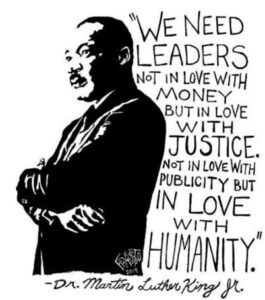
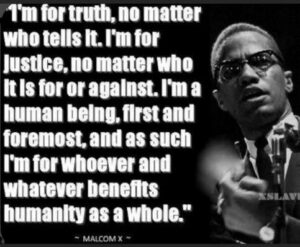
Regulation
Disappointingly, neither Social Work England’s education and training standards for 2019 or 2021 nor the professional standards for social workers explicitly refer to anti-discriminatory (ADP), anti-oppressive (AOP) or anti-racist practice. The professional standards refer to “challenging the impact of disadvantage and discrimination, promoting social justice and helping to confront and resolve issues of inequality and inclusion”. But is that really explicit enough? How can social workers be properly educated and held to account on promoting basic human rights for marginalised groups with the bar so low? Or is this just not a priority for us anymore? Social justice in this context feels like another catch-all to me – like BAME or EDI (equality, diversity and inclusion). Without explicit inclusion of these principles how can we ensure they are applied in policy, practice and education? Simple answer? We cannot. Why is this no longer important?
There is a long history of ADP, AOP and anti-racist principles being intrinsic to social work values and ethics. The legal backdrop and framework is built on the Human Rights Act 1998, Race Relations Act 1976, Disability Discrimination Act 1995, Sex Discrimination Act 1975 and Equality Act 2010. Therefore, it’s almost incomprehensible in my mind that these hard-fought principles are omitted from today’s regulatory standards and supplementary guidance.
The previous social work standards, regulated by the Health and Care Professions Council (HCPC), were stronger, expecting practitioners to “be able to practice in a non-discriminatory manner” and “use practice to challenge and address the impact of discrimination, disadvantage and oppression”. Even prior to that, the General Social Care Council’s (GSCC) codes of practice required employers to “put into place and implement policies and procedures to deal with dangerous, discriminatory or exploitative behaviour and practice” and social workers to use “established processes and procedures to challenge and report dangerous, abusive, discriminatory or exploitative behaviour and practice”.
Therefore, the current social work standards are regressive and do nothing to advance the principles set out by their predecessors – despite the desperate and obvious necessity. Many believe these principles are now diluted and de-prioritised beyond the point of complacency. Similar concerns have been raised by the chief social worker for children and families, with regards to the teaching of anti-oppressive practice in social work education.
Social Work England’s professional standards do acknowledge the impact of “difference and discrimination” on service-users, but what about how these factors impact on minority groups of social workers? There has been a silent shift to sweep the protected characteristics under the carpet of ‘equality, diversity and inclusion’ (EDI); which we know masks individuality – much in the same way as ‘BAME’ does to Black and ethnic minority groups. It conveniently rolls off the tongue – but subtly dehumanises and ‘others’ us.
The importance of incorporating these values and ethics was highlighted by BASW England in our response to Social Work England’s (SWE) consultations on rules and standards in April and June 2019 (prior to Social Work England’s inception). Unfortunately, our recommendations were not included. Reminders were issued to Social Work England (via Twitter) on 17/06/20 and 23/06/20. As of yet, there has been no response. I refer to these facts to underline the importance of these fundamental principles and how their omission in social work regulation is a travesty of social justice in itself. Without explicit inclusion, how else can social work educators and workers be properly educated and held accountable on ADP, AOP and anti-racism? There are real concerns about the standards being superficial, cold-hearted, corporate benchmarks, as opposed to empirical and evolutionary cornerstones of social work that advance human rights and social justice.
I still find it astounding that social workers are so heavily regulated and that their employers are not. The Local Government Association’s (LGA) employer standards, are not mandatory and insufficient accountability exists. A few other equality frameworks and ‘innovations’ exist or are in the pipeline, but again the big questions are: Are they mandatory and enforceable? Do they apply to all social work employers? Do they explicitly embed ADP, AOP and anti-racism in social work policy, practice and education? Not as far as I can see. So, the provisions all seem very piecemeal and one-sided to me and rather oppressive for all – especially Black and ethnic minority social workers.
Do Social Work England and the chief social workers support the idea of the LGA’s employment standards becoming mandatory and universal? We know from BASW campaigns, research and our ongoing discussions with members that the working conditions for social workers remain diabolical in many organisations. However, there is little evidence of this being taken into account and appropriate action taken against employers (when necessary) as part of fitness to practise cases.
Community Care has reported that Black and ethnic minority social workers are “over-represented in fitness to practise cases [and] adjudication hearings are disproportionately white compared to the profession”. This evidence needs to be categorised and scrutinised in the context of social work employers (public, private and third sectors). Also, these conclusions are not new. The GSCC and HCPC have historically reported on this too. So, what efforts have been made to address these longstanding issues of poor working conditions and inequality? Again, how much of a priority is it? Why are we continuously asking the same old questions? No more questions – just actions please.
As reported in another Community Care article, how much of a priority is given to employing ethnically diverse workforces and senior leaders? I think most Black and ethnic minority professionals (and their allies) would be keen to know what is actually being done to reverse these trends.
Since George’s Floyd’s killing and the resurgence of the Black Lives Matter movement, BASW has been at the forefront of anti-racist social work activism. BASW England has championed anti-racism in social work on a scale unrivalled by any other organisation within the profession. Our activities have involved: the publication of numerous articles (1, 2, 3, 4 & 5); incisive and timely position statements (1 & 2); a campaign to change the racist imagery on the KCMG medal; establishing the Black & Ethnic Minority Professionals Symposium; developing the Black & Ethnic Minority Social Workers Anthology (working title); several podcasts (1 & 2) and webinars (1 & 2); a response to the minister for equalities’ report on the disparate impact of Covid-19 on Black and ethnic minority communities and presentations on anti-racism in social work (specifically designed for social work organisations) across England (and internationally).
The KCMG campaign is ongoing. We have received an acknowledgement from Buckingham Palace and our letter has been redirected to the Cabinet office. However, in a bizarre twist, the original tweet (which went viral) has now been deleted from Twitter. We have asked Twitter to explain this, but no response has been forthcoming. We know silence on racism is complicity with the oppressors. I think silence can also be construed as blatant racism in some scenarios. It seems when our oppressors choose not to attack us, the wall of silence is their other favoured tactic. Open dialogue has remained a prominent source of conflict resolution for good reason – it works! It helps to positively undermine any covert or overt power imbalance.

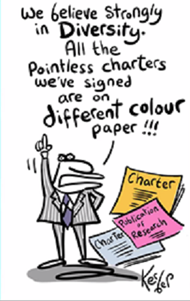
You can’t read yourself into activism
Anti-racism in social work risks being perceived as radical activism or anarchic ideology. Our social leaders must reverse this flawed belief system. I live in hope that social work policy, practice and education will now begin to properly recognise and reflect that ‘race’ is a socially constructed idea with no scientific validity – invented and refined principally to oppress Black people. Race remains an unstable concept because it is superficially based on physical appearance. When race was constructed people knew very little about DNA, genetics and human origins. It is an outdated colonial invention that still permeates modern society. Intellectually and morally, as a profession and as a society, we must see beyond what was pre-determined for us centuries ago.
So, if society is built on plantations of racism, still celebrates racist history and traditions and reminds us daily of the inescapability of White supremacy, it’s not enough for social workers (and social work organisations) to be ‘colour-blind’ or ‘non-racist’. We must be PROACTIVELY anti-racist – otherwise anything else is just tiresome lip-service. If anti-racism in social work does not exist for social workers, can it ever truly exist for service-users? Anti-racism is absolutely integral to social work, so when will it be given the credence it deserves? Without standing up for our defining values and ethics, what is to stop us succumbing to the pervasive and pernicious post-modern sleaze?
Dr Muna Abdi, a leading anti-racism educator, says: “The work of anti-racism is to fight racism wherever you see it… even in yourself. The struggle cannot be found in the pages of a book. You can’t read yourself into activism. Sooner or later, you’ll have to make a choice… Do what is safe or do what is right.”
Ultimately, if my destiny is to try and fail, then I can live with that. I’d rather die trying, thanks. Otherwise, how can I look my kids in the face or even look myself in the mirror? My scruples dictate that I must do what I know to be right (personally and professionally). My only wish is that more people did the same. I do not want to appear ungrateful, but I can live without the acclaim, the ‘likes’, ‘retweets’, plaudits etc. I want revolution! So, brothers, sisters and allies – if you know your herstory, if the ancestral spirits live within you, if you know right from wrong – then now is the time to show and prove yourself – RISE UP! What have you done to enforce anti-racism and promote black liberation lately?
Let’s not forget, “when you’re accustomed to privilege, equality feels like oppression”. The only real enemy of progress is ignorance and ‘wilful blindness’.
Social justice must prevail.
‘One world, one race… the human race!’
Thanks for reading.
Do keep in touch at: wayne.reid@basw.co.uk or @wayne_reid79 (Twitter) if this article resonates with you.
[This article was originally published in Social Work News magazine on 21/12/20: https://www.mysocialworknews.com/article/black-history-month-has-passed-but-we-must-not-stop-ringing-the-alarm-on-racism-in-social-work].
